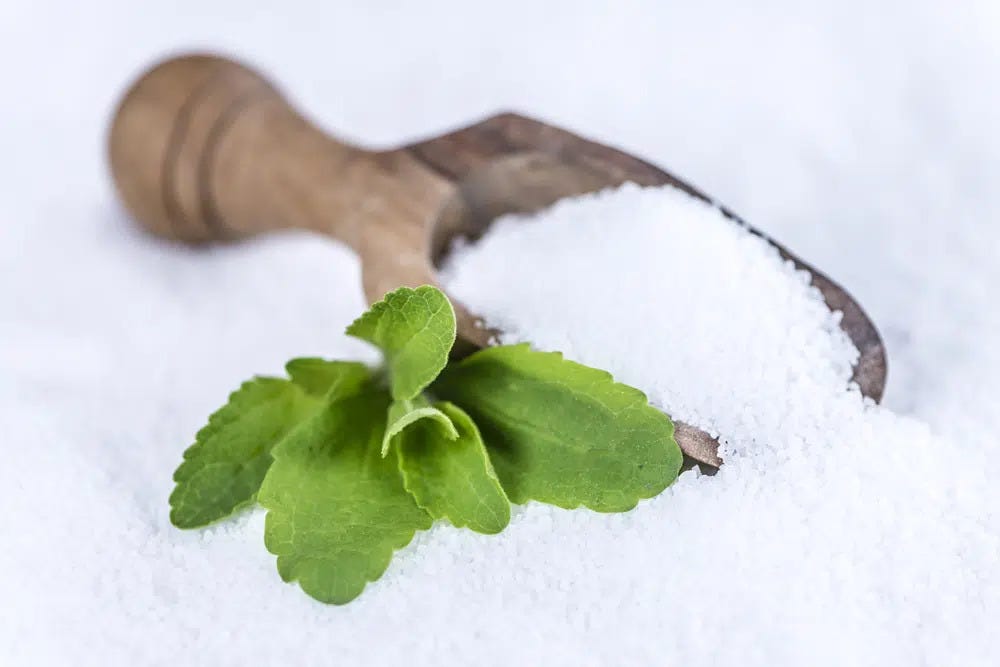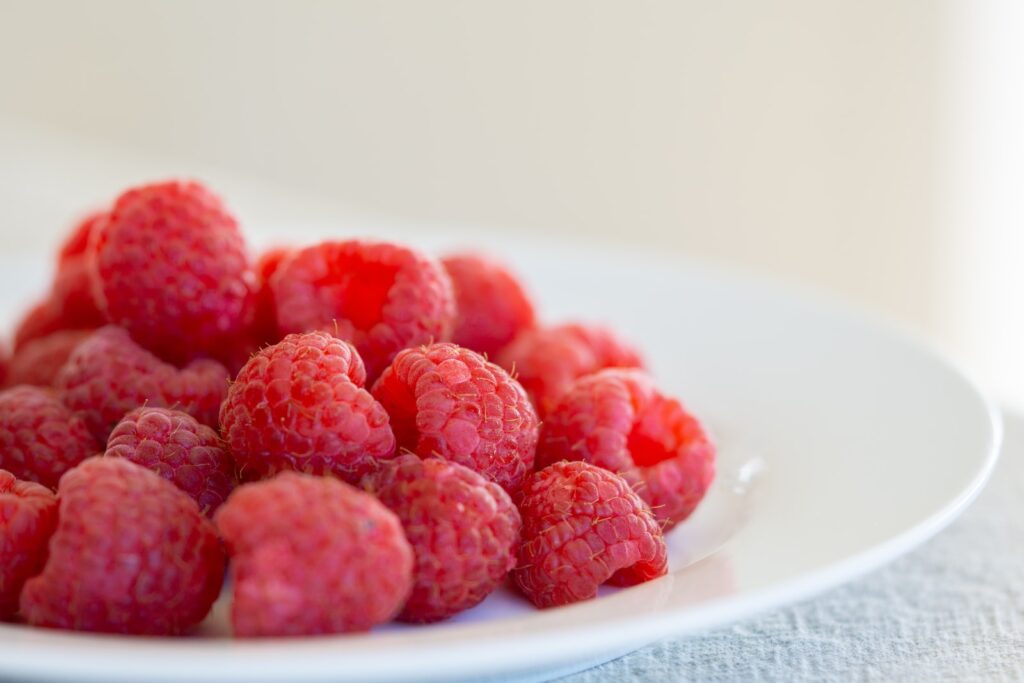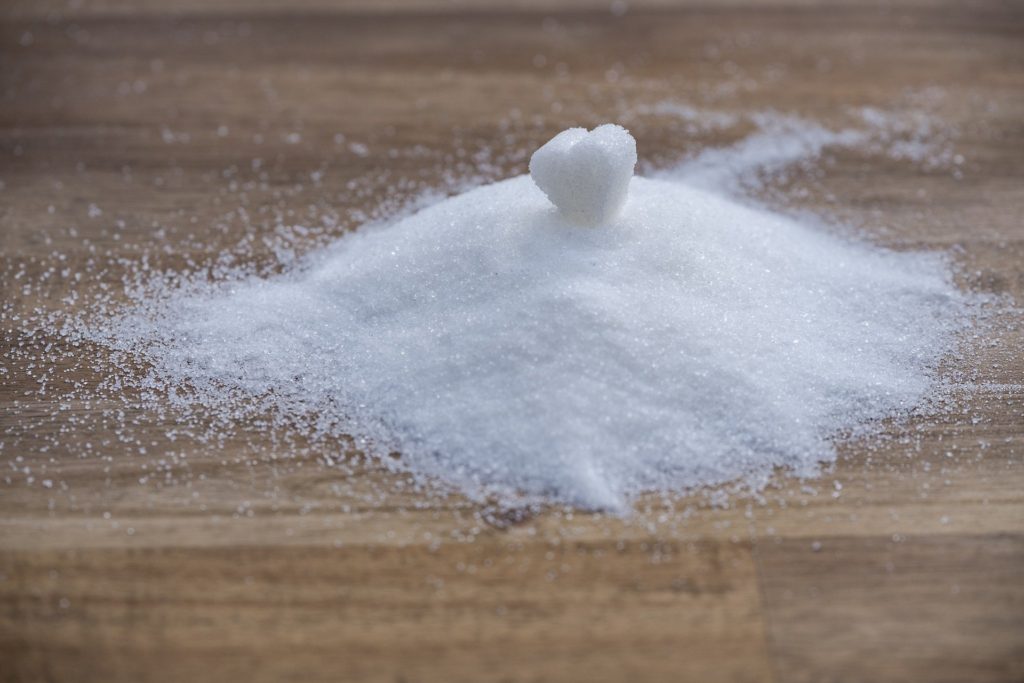Most artificial sweeteners aren’t safe to consume during pregnancy.
But, there’s no denying that pregnancy comes with some sacrifices.
Even if you’re trying to eat as healthy as possible during your nine months, there are still a lot of foods you just can’t have anymore.
Artificial sweeteners might be one of them.
While they might seem like a harmless alternative to the usual sugar found in most snacks, most of the common artificial sweeteners you eat are toxic.
In this article, I’ll discuss why most artificial sweeteners shouldn’t be consumed during pregnancy, & which ones you should consume instead.
What Are Artificial Sweeteners?
Artificial sweeteners are chemicals that are much sweeter than regular sugar but without most of their calories. As a result, they are often used in place of sugar to create lower-calorie foods or foods that people with diabetes or gestational diabetes need to avoid, like desserts and baked goods.
What Are the Most Common Types of Artificial Sweeteners?
The most common types of artificial sweeteners are aspartame (diet soda,) sucralose (Splenda,) saccharin (Sweet ‘N Low,) & acesulfame K (Equal.)
These are the most common artificial sweeteners that you can regularly buy.
But, these sweeteners have some negative side effects.

Are Artificial Sweeteners Safe During Pregnancy?
No, most artificial sweeteners aren’t safe to consume during pregnancy. This is because the most common artificial sweeteners, like Splenda, Sweet ‘N Low, etc, cause toxic effects on your body & brain, which could possibly harm your child. Instead, it’s better to consume non-toxic, natural sweeteners like Stevia.
Consuming artificial sweeteners has also been shown to increase your risk for stroke & dementia by 3x.
This is because these artificial sweeteners are, at the end of the day, chemicals.
Which Artificial Sweeteners Are Harmful During Pregnancy?
These are the artificial sweeteners you should avoid during your pregnancy due to their toxic effects:
- Aspartame (Diet Soda)
- Sucralose (Splenda)
- Saccharin (Sweet ‘N Low)
- Acesulfame K (Equal)
- Neotame
Since these sweeteners are artificial chemicals, they can cause toxic effects on to your body & your child.
But, that doesn’t mean that all hope is lost if you still want to consume sweet foods during your pregnancy without consuming sugar.
Note: Some of these links are Amazon affiliate links which I may earn a commission from :)*

Which Artificial Sweeteners Are Safe During Pregnancy?
Artificial sweeteners like Stevia, monk fruit, chicory root, & erythritol are all safe to consume during pregnancy. This is because these sweeteners, unlike most other sweeteners, are natural. This means that they won’t cause any toxic effects to you or your fetus.
The problem with the most common artificial sweeteners like aspartame & sucralose is that they cause toxic effects on your body which can lead to stroke & dementia.
But, natural zero-calorie sweeteners, like Stevia & monk fruit, don’t cause any of these toxic effects.
My favorite zero-calorie natural sweetener is this sweetener.
It’s a mix of monk fruit extract & erythritol & tastes almost identical to sugar.
It’s also a 1:1 replacement for sugar so it’s easy to use.
Conclusion
Some artificial sweeteners have been linked to health issues like stroke & dementia, which can be alarming for pregnant women.
But, the good news is that not all artificial sweeteners cause these effects.
If you’re trying to reduce your sugar intake during pregnancy, but you also don’t want to experience the toxic effects of the most common artificial sweeteners, choose natural sweeteners like Stevia or monk fruit instead.
With these safer alternatives to sugar, you can still enjoy sweet foods, even if you’re pregnant.
If you want to learn about the toxic effects of the most common artificial sweeteners, you can read my article here where I discuss the science & help you to choose the artificial sweetener that’s right for you.
- Can You Still Lose Weight If You Aren’t in Ketosis? - February 8, 2023
- Can the Keto Diet Help With Depression? - February 8, 2023
- Why Does Processed Food Make You Fat? - January 2, 2023




